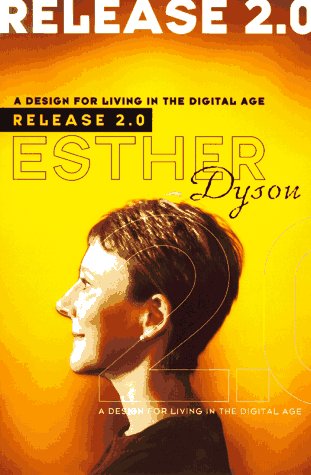The DIfference Between Physical and Cyber Communities
While terrestrial governments are natural monopolies in their own territories, cyberspace governments compete. Terrestrial governments get overthrown when things get too bad; cyberspace governments simply lose citizens, much as a business loses customers. Former members may even go into competition with their old communities. The terrestrial government game is all-or-nothing (despite the possibility of loyal opposition), whereas Net governments an coexist. "Citizenship" is voluntary.
A Net-based government can operate only by consent of the governed. Any Net government must therefore provide its citizens with real benefits if it wants them to stick around. Those benefits may not be just personal goods or services, but rather the broader benefits of a regulatory regime: a clean, transparent marketplace with defined rules and consequences, or a supervised community where children can trust the people they encounter or individuals' privacy is protected.
Notes:
Physical communities are an all or nothing game, they must maintain governing power, while cyber communities are purely consent of the governed, or people will vote with their mindshare.
Folksonomies: memetics mindshare cyberspace
Taxonomies:
/law, govt and politics/government (0.644971)
/law, govt and politics/immigration (0.379044)
/business and industrial (0.108866)
Keywords:
terrestrial governments (0.915465 (negative:-0.749768)), cyberspace governments (0.897254 (negative:-0.720283)), Cyber Communities Physical (0.794580 (neutral:0.000000)), terrestrial government game (0.774157 (negative:-0.399639)), Net governments (0.674468 (neutral:0.000000)), purely consent (0.673039 (neutral:0.000000)), natural monopolies (0.621858 (neutral:0.000000)), DIfference Between Physical (0.616710 (neutral:0.000000)), Net-based government (0.608410 (negative:-0.302978)), loyal opposition (0.605657 (negative:-0.310439)), regulatory regime (0.595989 (positive:0.664208)), supervised community (0.592736 (neutral:0.000000)), transparent marketplace (0.590245 (neutral:0.000000)), broader benefits (0.586396 (positive:0.664208)), old communities (0.584325 (negative:-0.284357)), personal goods (0.582668 (positive:0.472161)), real benefits (0.568621 (positive:0.685632)), Net government (0.562173 (positive:0.685632)), citizens (0.484518 (negative:-0.034650)), people (0.468200 (positive:0.231524)), mindshare (0.466671 (positive:0.231524)), coexist (0.453875 (neutral:0.000000)), Citizenship (0.445473 (neutral:0.000000)), territories (0.443590 (neutral:0.000000)), possibility (0.440779 (negative:-0.310439)), consequences (0.437666 (neutral:0.000000)), power (0.437645 (neutral:0.000000)), things (0.434195 (negative:-0.749768)), business (0.433924 (negative:-0.810420)), customers (0.433886 (negative:-0.810420))
Concepts:
Government (0.983217): dbpedia | freebase
Political philosophy (0.636399): dbpedia | freebase | opencyc
Economics (0.590576): dbpedia | freebase | opencyc
Democracy (0.590388): dbpedia | freebase | opencyc
Law (0.579455): dbpedia | freebase | opencyc
State (0.549224): dbpedia | freebase
Good (0.526552): dbpedia | freebase
English-language films (0.525323): dbpedia





